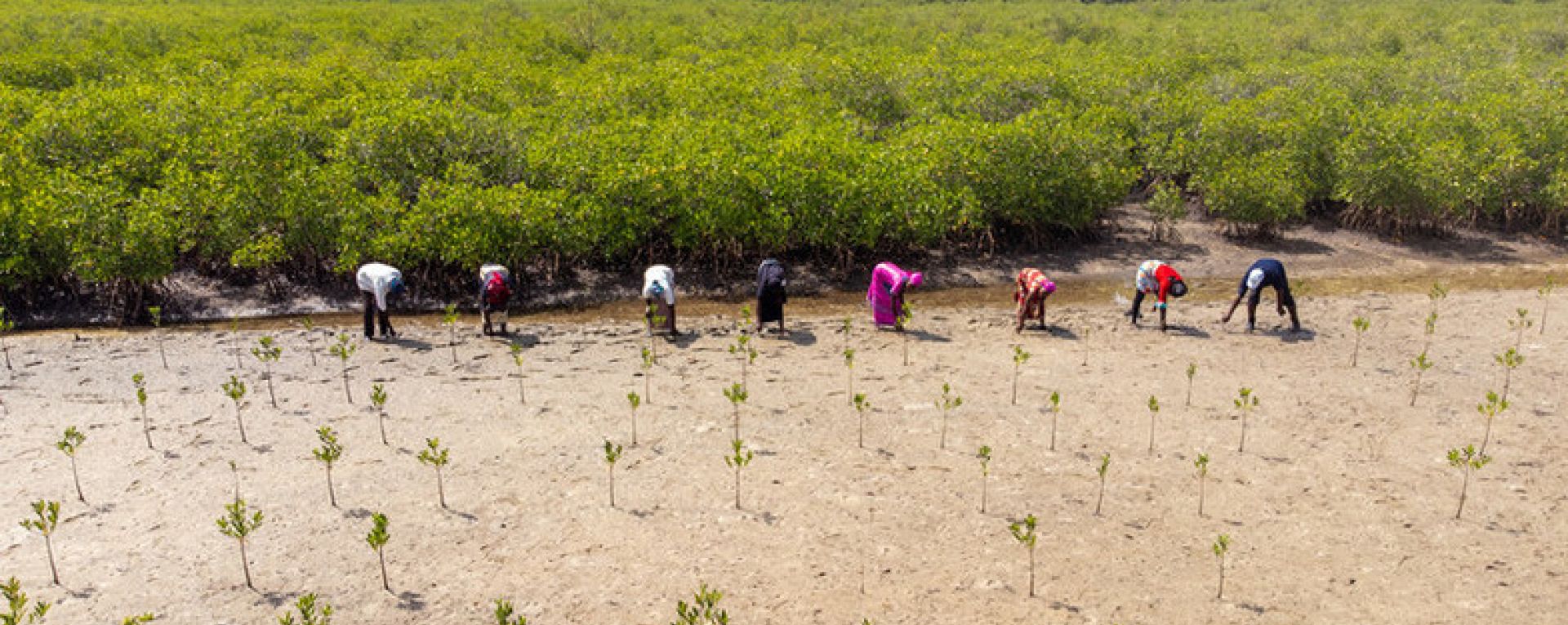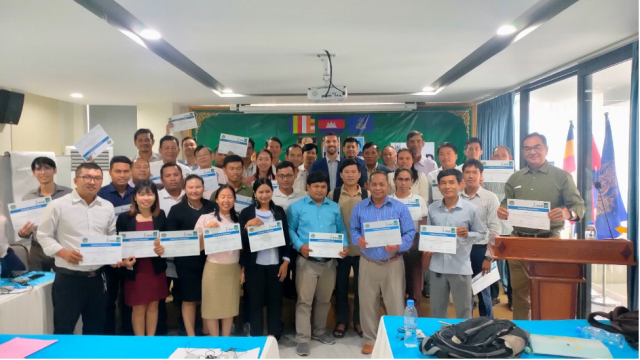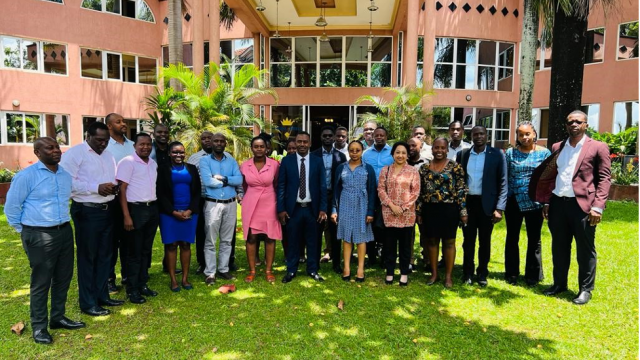Data Use
Agricultural data produced through the 50x2030 Initiative in partnership with country teams are a critical resource to support decision making and policy development. As such, the Initiative has produced the following briefs using high-quality 50x2030 data to inform country goals related to food security, sustainability, women's empowerment and rural economic development.
Over the past couple of years, 50x2030 has conducted extensive work in 6 countries to strengthen government capacities for using data to inform policy. These countries are Sierra Leone, Ethiopia, Georgia, Cambodia, Uganda and Senegal. Some examples of recent achievements are provided below.
Sierra Leone
As Sierra Leone faces increasing challenges around rural development and food security, the need for a strategic, data-driven approach to agricultural policy has never been more pressing. With a predominantly agrarian economy and over half of the population relying on agriculture for their livelihood, the sector holds immense potential to improve food security, foster economic resilience and reduce poverty.
In early 2023, Sierra Leone joined the 50x2030 Initiative to focus on implementing an annual agricultural survey program to produce timely, high quality foundational agricultural data that fit the needs of the country and match national development targets. The 50x2030 Initiative likewise assists the country in strengthening use of survey data to inform decisions, policies and investments. 50x2030’s support also contributes to Sierra Leone's involvement with an ongoing World Bank IDA project called Harmonizing and Improving Statistics in West Africa, or HISWA. The implementation of 50x2030 activities in Sierra Leone will run for five years, concluding in June 2028.
Earlier this month, Sierra Leone released the Feed Salone One Year Report at an event presided by the President Julius Maada Bio and Minister of Agriculture Musa Mpaka. “Feed Salone” is President Bio's flagship program to transform Sierra Leone’s agri-food systems and aims to foster inclusive economic growth, create jobs, ensure food security and build climate resilience. The Report covers the period from August 2023 to September 2024 and explicitly cites elements of support that the Government receives from the 50x2030 Initiative:
“The Sierra Leone Data Ecosystem Mapping (DEM): Released under the 50x2030 Initiative, assesses the agricultural data landscape in Sierra Leone. Published in May, the report analyses the current and desired state of agricultural and rural data use, identifying constraints to effective data application. Additionally, it maps key stakeholders and their communication networks using a mapping tool to better understand relationships and data-related practices. This effort is part of the broader roadmap to improve data-driven agricultural development by 2030.”
This represents clear evidence of Sierra Leone’s commitment to using agricultural data for decision and policy making and the important role that 50x2030 is playing in supporting their strategic goals.
The Data that will be collected, analyzed and disseminated in Sierra Leone thanks to the 50x2030 Initiative can be used to implement national priority programs, such as to:
- Enhance Crop Production and Yield Management
- Mitigate the Impact of Climate Change on Agriculture
- Effect Efficient Investments and Infrastructure Development
- Support Market Access and Reduce Food Waste
- Support Smallholder Farmers with Targeted Interventions
- Evaluate Policy Impact and Refine Approaches
Sierra Leone’s commitment to using agricultural data for policy making represents a transformative step towards achieving food security and resilience in the face of growing challenges. Data-driven policies enable the government to maximize productivity, support smallholder farmers, prepare for climate impacts and ensure equitable access to food. By investing in data collection, use, infrastructure, technology, Sierra Leone can establish a sustainable, efficient and resilient agricultural sector in a country where agriculture is both a lifeline and a pathway to prosperity.
Ethiopia
Since 2021, 50x2030 has been hosting an annual research competition for local researchers to leverage 50x2030 datasets to showcase key trends and explore possible areas for policy interventions. One of the proposals selected in 2021 clearly illustrates the research to policy-making value proposition. It was submitted by Dr G. Giorgis Kokeb, Assistant Professor at the Ethiopian Civil Service University titled “Migration, Remittances and Agricultural Transformation in Ethiopia."
Dr Kokeb contended that migration and remittances significantly affect rural agricultural transformation in Ethiopia, but currently there is little empirical evidence available to prove it. Dr Kokeb’s study examined the effects of migration and remittances on agricultural productivity and technology adoption using data from the Ethiopian Socio-Economic Survey (ESS), which is included under the 50x2030 Initiative as of 2019.
As is the case for many African countries, migration is absent in Ethiopia’s national development policies. Moreover, there is also no specific policy linking migration to food/agricultural production, and the financial infrastructure for remittances in rural areas is very limited. The research was designed to contribute to the design of policies and strategies that facilitate a more efficient flow of migrant remittances into national development and allow remitters to invest their income in farm and off-farm enterprises. Greater efficiencies in remittance flows will then enhance agricultural productivity and farm households’ income diversification strategies.
This research project demonstrates the roles and relationships between data stakeholders (as defined the 50x2030 Initiative’s Guide to Promoting Data Use) that are necessary for data-informed decision-making, as depicted in Figure 1.
Figure 1 -- Taking Data to Impact: The Roles and Actions of Data Stakeholders in Data-Driven Decision-Making, presenting a model for the presumed impact of migration and remittances on improved agricultural production from the research perspective.
The research findings, which were showcased at the 50x2030 Global Conference held in November 2021, confirm the beneficial impact of migration and remittances on increased agricultural investment in rural Ethiopia:
“The empirical results shows that irrespective of the type of model used migration and the 19 resulting remittances have positive and significant effect on productivity enhancing agricultural technology adoption such as use of chemical fertilizer and use of improved seeds in Ethiopia. The findings imply that Ethiopian government should revisit some of its policies which directly or indirectly hinder rural labor out-migration”
Since the time that this research was published, Dr. Kokeb has been widely advocated the results and its policy implications and the findings have contributed to the evidence-base for new government policies on migration and remittances towards the goal of rural agricultural transformation, such as Ethiopia’s Ten Year Development Plan: A Pathway to Prosperity (2021-2030).



